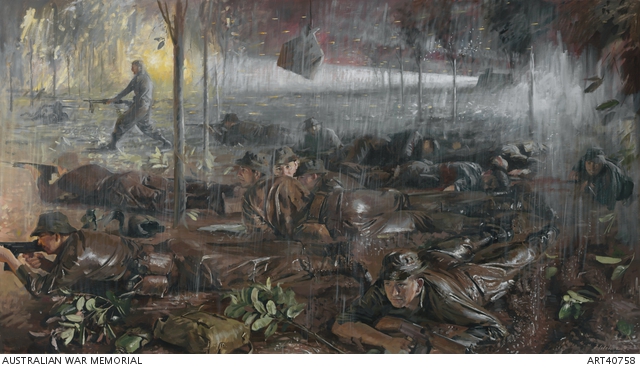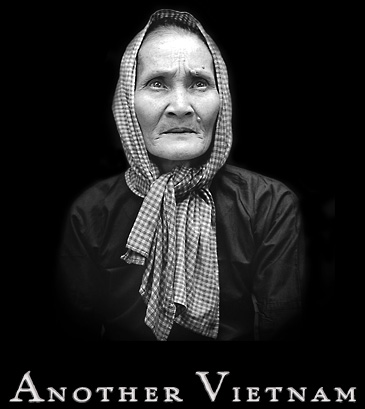‘Australia’s Vietnam War – and keeping it in context: an Honest History series’, Honest History, 15 August 2016 updated
UPDATE 11.45 am FRIDAY: Still difficulties with access.
UPDATE 6.00 AM THURSDAY: Restricted access to be allowed.
STOP PRESS: Cancellation of Long Tan service in Vietnam
Minister Tehan has advised that the commemorative service planned for the Long Tan Memorial in Phuoc Tuy province tomorrow will not now take place. While the reasons behind this cancellation (at the initiative of the Vietnamese Government) are not yet clear*, Honest History agrees with the Minister that this is a matter for regret. There will be small-scale substitute arrangements.
* ‘A Vietnamese Government source told the ABC the Australian Consulate promised to hold a “low key” event. However, the gala dinner, concert and the expectation of more than 1,000 Australians at the Long Tan memorial cross was seen as an insensitive celebration.’ (ABC Online, 9.00 pm, 17 August)
_______________________________
This week marks the 50th anniversary of the Battle of Long Tan in Phuoc Tuy province, Vietnam (18 August 1966). The anniversary is being treated officially as a general commemoration of Australian involvement in the Vietnam War. (The day has been designated as Vietnam Veterans’ Day since 1987.) Details of official commemoration arrangements are here.
 Long Tan action, Vietnam, 18 August 1966 (AWM ART 40758/Bruce Fletcher). While this work is used frequently to illustrate Long Tan stories, the AWM’s description points out its errors or artistic licence.
Long Tan action, Vietnam, 18 August 1966 (AWM ART 40758/Bruce Fletcher). While this work is used frequently to illustrate Long Tan stories, the AWM’s description points out its errors or artistic licence.
Long Tan was a small part of a long and complex war. (An official historian of the war says: ‘Long Tan remains a defining event in Australia’s longest war. But it was not a pivotal battle as some have claimed. It was neither a turning point in the Vietnam War, nor was it a decisive victory.’) Eighteen Australian soldiers died and 24 were wounded. Viet Cong and North Vietnamese losses were at least 245 dead and 350 wounded. Every death in war is a tragedy and every wound, physical and mental, has consequences for individuals and families.
Honest History has seen the Vietnam War as an important part of Australia’s war history, not only because of its military aspects but because of its impacts on Australian society. Far more important, however, were the impacts on other countries besides Australia, particularly on what became the unified country of Vietnam. Statistics are a crude measure of impact but here are some (all of the larger figures are notional and disputed and the Australian deaths figure is ‘as a result of the war’):
- Military dead: Australia 521; South Korea 5100; United States 58 300; Allied military deaths (1965-74) 282 000; North Vietnam-Viet Cong deaths 440 000-1 100 000; South Vietnam deaths (1960-74) 254 000;
- Military wounded: Australia 3100; South Korea 11 200; United States 153 300;
- Civilian dead 1965-74: Vietnam 590 000;
- All war deaths 1954-75, Vietnam, Cambodia, Laos: 1 450 000-3 600 000.
This American article from 2012 is relevant to the universal practice of excessive concentration on one’s own country’s casualties at the expense of a broader focus based on the common humanity of the victims of war.
Over the next week, Honest History will post some Vietnam-related articles from our archives. In Vietnam, the war is known as the Second Indo-China War or simply the American War. The first archive post is Alex Q. Arbuckle’s collection of photographs by Vietnamese photographers of the war from the ‘winning’ side.
Australia’s Vietnam War in context (1): 1965-1975 another Vietnam: unseen images of the war from the winning side
From the Honest History archives. Alex Q. Arbuckle put together this collection for Mashable of photographs taken by North Vietnamese and Viet Cong photographers. The photographs have been available since at least 2002 in various forms. They are drawn from a much larger cache of photographs on the website Another Vietnam.
Australia’s Vietnam War in context (2): Agent Orange – Vietnam scourge of soldiers and civilians alike (March 2015, March 2016)
From the Honest History archives. Links to three articles on the effects of Agent Orange, chemical defoliant, in Vietnam, showing how it affected soldiers and Vietnamese civilians alike. A long struggle has led to a potential rewriting of Australian official history but the effects of Agent Orange are more widespread and more lasting in the country where the war was fought.
Australia’s Vietnam War in context (3): What happened to Australians after the Vietnam War (June 2015)?
From the Honest History archives. Link to previous material on welcome home parades, recognition of service, misremembering what really happened, and how complex wars produce complex aftermaths, plus a number of other ways of remembering. There is some mythbusting and some responses.
Australia’s Vietnam War in context (4): The Battle of Long Tan turns fifty – but not without a hitch
New piece from former Australian Ambassador to Vietnam, Richard Broinowski, on the politics of the Long Tan battle commemoration, even as it shifted quickly. ‘What is surprising is that, given the bitterness of the war and the enormous number of Vietnamese civilians killed by US forces and their allies, the Vietnamese Government in Hanoi has permitted Australian celebrations of Long Tan to take place at all, even in an attenuated form.’
Australia’s Vietnam War in context (5): We need to talk about how we commemorate our wars in other people’s countries – and our own
New piece from Honest History’s David Stephens on the implications of the fact that almost all of Australia’s wars are overseas and the subsequent need to tread on eggshells when dealing with rightly sensitive inhabitants of the countries we fought over. The article concludes by noting that the sites of Australia’s Frontier Wars are a lot closer to home than Long Tan ‘though there is still a need for sensitivity when visiting them; they are on other people’s country still’.
Australia’s Vietnam War in context (6): People who turn up – nurses in Vietnam (June 2016)
From the Honest History archives. A recent review by Pamela Burton of Annabelle Brayley’s book, Our Vietnam Nurses. The story of nurses in the Vietnam War has not been sufficiently told. This is the case even today, where neither the Governor-General, in two speeches about the Vietnam War, nor the Prime Minister in his speech, used the word ‘nurses’ once.
Australia’s Vietnam War in context (7): Viet Thanh Nguyen: Nothing Ever Dies: Vietnam and the Memory of War
Notes on a recently published book by a Vietnamese-American academic, who was a refugee from Vietnam in 1975. The post sums up Honest History’s approach to Long Tan week in Australia by stressing the need for a non-parochial approach to commemoration. Viet Thanh Nguyen’s book ‘offers a lesson for all wars by calling on us to recognize not only our shared humanity but our ever-present inhumanity’.
Australia’s Vietnam War in context (8): A ‘kick in the guts’? A final look at Long Tan
Honest History contributor Willy Bach writes about the implications of the Long Tan commemoration, among other points comparing the reaction of Australian veterans to the likely reaction of Chinese entrepreneurs following the recent AusGrid decision. He refers to his current research on the Phoenix Program, undertaken by the Americans during the Vietnam War. The final illustration refers to one of the three Australian women killed during the war.
Australia’s Vietnam War in context (9): Leadership in the face of Anzackery
Vietnam veteran and communications specialist, Noel Turnbull, notes the role of Colonel Harry Smith, formerly of Long Tan 1966, in promoting sensible reactions to the Vietnamese response to potentially excessive commemoration at Long Tan 2016. He uses the term ‘Anzackery’, which is now defined in the Australian National Dictionary as ‘‘[t]he promotion of the Anzac legend in ways that are perceived to be excessive or misguided’. More (scroll down to ‘Anzackery’ sub-heading).
Australia’s Vietnam War in context (10): Australian sacrifice in Vietnam: it’s time to rethink the way we memorialise
Vietnam veteran Greg Dodds is sceptical about stories of Australians needing closure.
But for those who do want to remember the Diggers who died at Long Tan, the best option is to attend a memorial service at home, at the Australian War Memorial in Canberra. That’s what it’s there for.
So, to the hangers-on looking for this thing called closure, understand that many real veterans don’t support you at all. Not one bit. And if you are still looking for closure, there’s the door. And mind your fingers.



Leave a Reply
You must be logged in to post a comment.